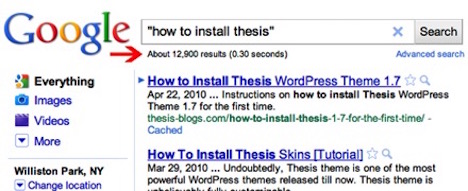10 Ways to Optimize Your Blog Post for Search Engines
Blogging isn’t just a scroll of a mouse. If you want to get high rankings in the search engine, it takes a great effort than just sitting down and waiting for views. Everyone might have heard of SEO and its benefits but let’s admit it, we don’t always have the time in the world to do both SEO and ensuring the business and product’s quality.
There is always an available writing service that could provide you with SEO. You may want to hire someone who could do your SEO or you make and write essay about it; but if you do not want to spend much, then read on and learn the methods of optimizing your blog posts.
This is not to say that once you read through this article it’s a sure way on the high ranks, nor do we encourage you to place as many keywords as possible into every post you make. You may write my paper and do those things but I will never be assured of its SEO. So here are areas of search engine optimization that I want you to focus on. Believe me, if this worked for me, then it should for you.
1. Conduct Keyword Research
Try guessing what people usually type when using an engine. However, there are various Keyword Research tools that are free so why go through the effort of manually checking?
Some of these free keyword tools are Google Keyword Planner or Wordtracker. You can use many tools to research for trending searches and phrases. However, if you want a more premium keyword tool, then there are SEObook.com or Raven Tools.
2. Focus on Low-Competition Keyphrases
If there is already a fierce competition on one keyword, waste no time and find another with little to none optimization. It’s easier for a site to be optimized when you are first in that niche. But how do you actually know if that keyword is competitive?
You can try searching for one over the internet. For example, try typing in “how to install thesis” using quotations and look at the number of results below the search box. That number alone is moderately competitive so it’s best to avoid that kind of keyword.

See the 12,900 results below the Search Box? That’s the number you’re looking for.
As a tip, if a keyword or key-phrase has fairly over 75,000 search results, avoid using it for SEO. You won’t be able to penetrate. Focus on keywords that has smaller search results so you can easily climb to a top rank.
However, not all competitive keywords or key-phrase do not send traffic anymore. My experience can vouch on that. I offered my writing service with SEO once in a highly competitive area yet it successfully landed first position in Google. I easily made $1500 out of that optimization scheme.
3. Choose One Keyword or Phrase, and then Write Your Article
When optimizing, you would want to achieve two goals: incorporating a key-phrase or keyword with minimal competition but also having traffic. So, what you can do is write essay that contains a specific key-phrase or keyword or skim through old articles and seamlessly place some of these chosen keywords and click update.
However, don’t let you article look forceful. Find a topic and a phrase that relates to each other and weave them into a helpful and relevant article. Quality of the content really matters so you should make sure that these contains high quality. Don’t just make an easy “write my paper quickly” without reviewing its content. A post has a better chance in topping the ranks in search engines when there is a high quality content.
4. Use Your Keyphrase in Your Post Title and Title Tags
What better way to explain this instruction than by taking it literally? Always use the chosen key-phrase or keyword in the title and tags of your posts. This will help you gain more links to your blog.
5. Repeat the Keyphrase in Your Article
Providing a high quality article with clear and concise information is still a must. When placing some keywords or key-phrases in it, use them and use them well. Include the key-word at the start of an article or a H2 tag. This may have little impact on rankings but readers will know that they are actually reading a post with a good and right content. When you write essay, start a keyphrase on the introduction and place a few of them throughout.
6. Use the Keyphrase in Your Meta Description Tags
This method does not really help a post in ranking higher. But if you include them, Google actually helps by bolding these keywords in the search results, which in turn, encourages people to visit your search results.
7. Find Images Related to Your Keyphrase
Words, at some point or another, may become draining to readers. So another way of optimizing a post is by finding related images and using the key-phrase in the description of the image. This will help search engines see that there is a valuable piece of content over the internet. This is also a great way to increase post accessibility.
8. Give Readers the Opportunity to Subscribe to Your Blog
By placing RSS or Feed Subscription Buttons and giving viewers the option to subscribe to ours posts through email, this allows your followers to reach your latest posts without you having to check every time.
9. Use Social Media to Broaden the Reach of Your Blog Posts
Lucky for us, social media is another great way to reach target audience. Celebrities and businesses alike uses Facebook, Twitter and Google+ for commercial and advertising purposes. You can always do the same to promote you blog and gain higher web exposure. There are free software available that place links of your blog on your social media accounts. These, with only a few clicks!
10. Reference Others with Links
When you got an information from another blogger or from an article in a blog, always include a link as reference. It isn’t just good etiquette but also an investment. In the long run, you may also get a link back. Nowadays, quality links are commodity so valuable that they can help in ranking higher in search engine results pages.
Other SEO Factors
There are really just some factors that play a huge influence in search engine rankings that has not been mentioned in this article. However, if you are just starting up, then these areas can help you with your SEO without exerting too much effort and budget.
Tags: blogging, search engine, seo, tips & tricks, web development resources












































